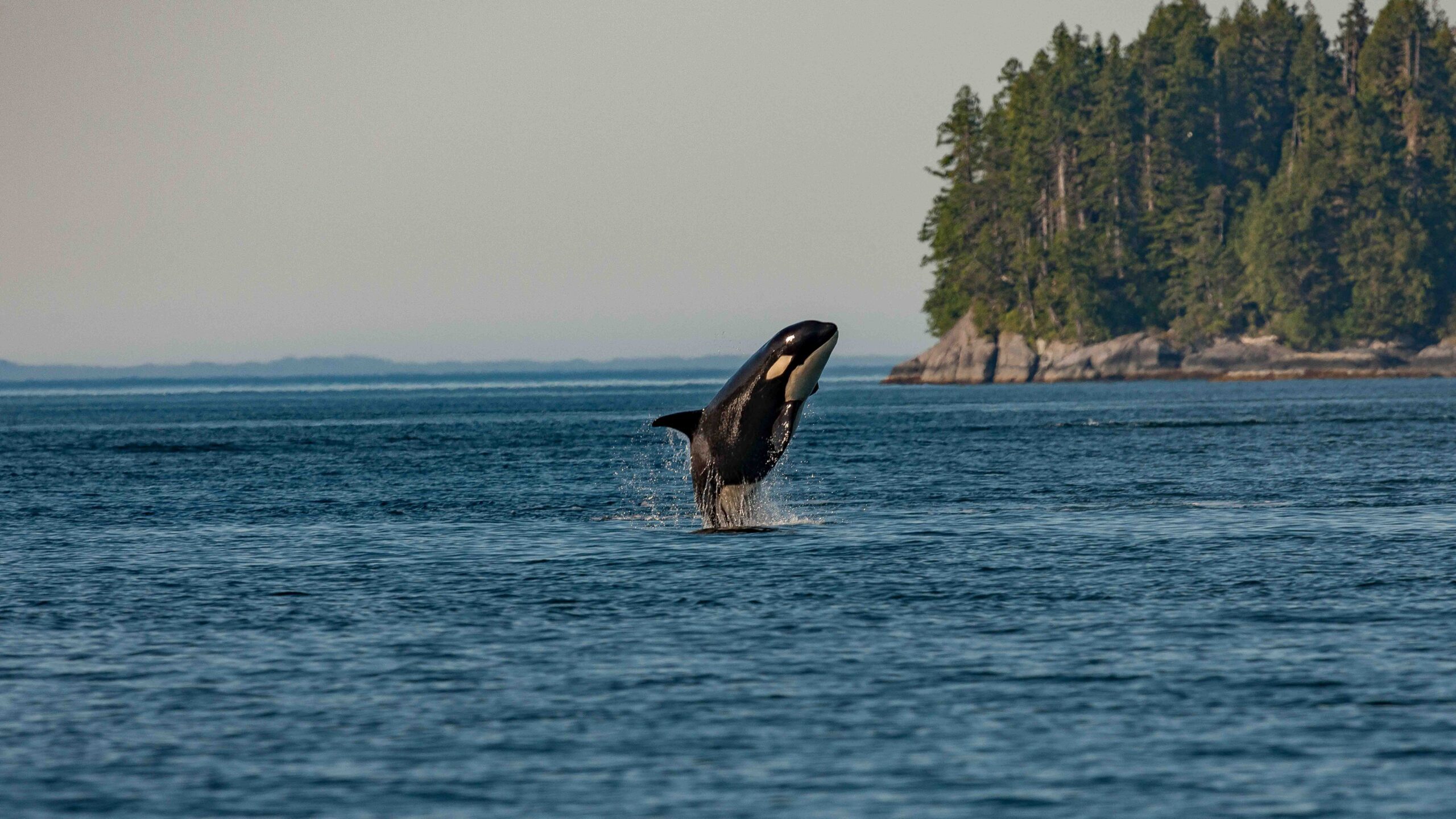Présentes dans tous les océans du globe, les orques sont particulièrement redoutées des plaisanciers en Atlantique : au large de l’Espagne, du Portugal et de Gibraltar. Dans cette zone à la sortie de la Méditerranée, en effet, quelques interactions ont eu lieu entre orques et voiliers en navigation. Alors, faut-il se méfier ? Que peut faire l’équipage pour éviter une mauvaise rencontre ?
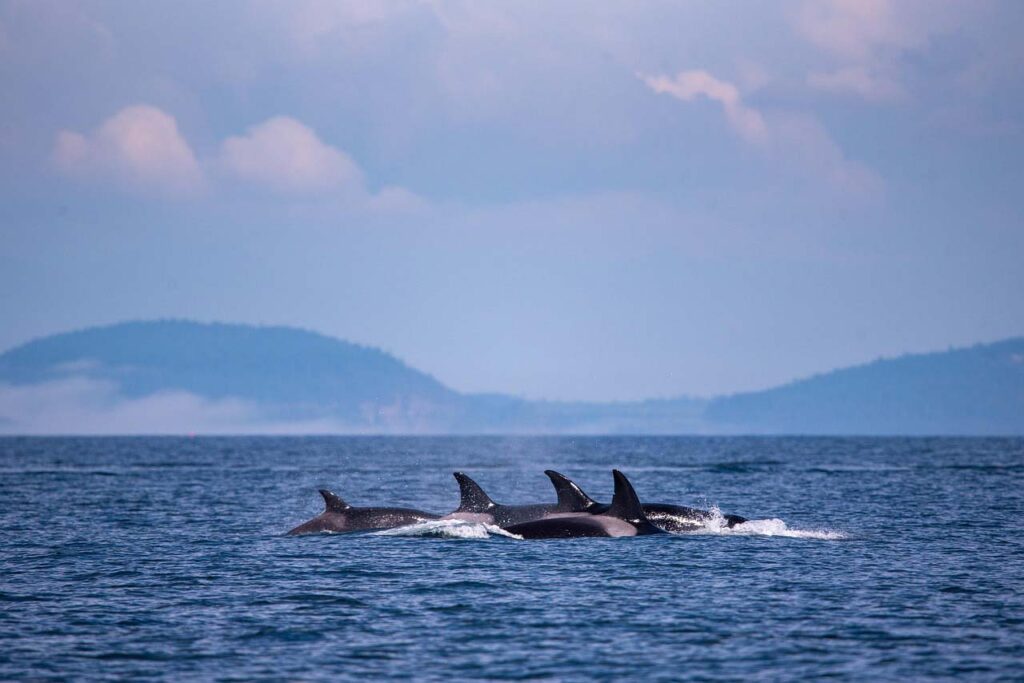
L’orque est un mammifère marin appartenant à la famille des Delphinidés, réputé pour son intelligence. L’espèce est reconnaissable à sa robe noire et blanche ainsi qu’à sa nageoire dorsale, un peu plus imposante chez le mâle. Plus grand dauphin du monde, l’orque mesure généralement entre 5 et 9 mètres. Quant à son poids, il peut dépasser les 5 tonnes…
Si les orques nagent dans de nombreuses mers du monde, une population spécifique préoccupe les plaisanciers de l’Atlantique Nord-Est : les orques ibériques, qui évoluent dans le golfe de Cadix et dans le détroit de Gibraltar. Les orques Gladis, qui participent à des interactions sur les bateaux dans la zone, provoquent l’appréhension de nombreux équipages.
Un secteur maritime en particulier pour les cétacés
Au large du Portugal, de l’Espagne et du Maroc, dans le détroit de Gibraltar, ce qui inquiète le marin, ce n’est pas de rencontrer un groupe de dauphins qui s’amuse à l’étrave… mais, plutôt, de se retrouver confronté à un groupe de cétacés recherchant un contact physique avec le bateau. Les navires de pêche sont concernés, tout comme les voiliers – monocoques et catamarans.
Les « attaques d’orques en Atlantique » ont commencé à susciter de l’inquiétude chez les plaisanciers en 2020. En 2024, ce sont 125 interactions entre orques et voiliers qui ont été recensées, principalement du mois de mai au mois de septembre. Les navires concernés étaient, pour la plupart, des voiliers de moins de 15 mètres et naviguant à une vitesse moyenne de 6 nœuds.
La recrudescence d’incidents a amené la communauté scientifique à s’intéresser de près au phénomène. Le groupe de travail sur les Orques de l’Atlantique (GTOA), notamment, s’est donné pour mission d’étudier le comportement des orques vis-à-vis des bateaux.
Ce qui est clair, c’est que les orques agissent en groupe et semblent adopter des comportements ciblés envers certains navires. Concernant les raisons qui poussent les espèces à venir rencontrer les bateaux, les avis divergent : les orques entreraient en interaction par curiosité, par jeu, ou avec un comportement plus agressif – selon certains, à la suite d’une rencontre voilier-orque qui aurait mal tourné. Les orques les plus jeunes, aussi, pourraient apprendre ces comportements par imitation de leurs ainés…
À ce jour, aucun accident mortel n’a heureusement été déploré. En revanche, certains voiliers ont été endommagés, avec des appendices ou safrans frappés, mordus, voire cassés. Dans de rares cas, des bateaux ont même coulé à la suite d’une attaque d’orques. Il faut donc garder en tête que les conséquences d’une rencontre entre un groupe d’orques et un voilier peuvent être importantes, et sérieusement influer sur les projets de navigation…
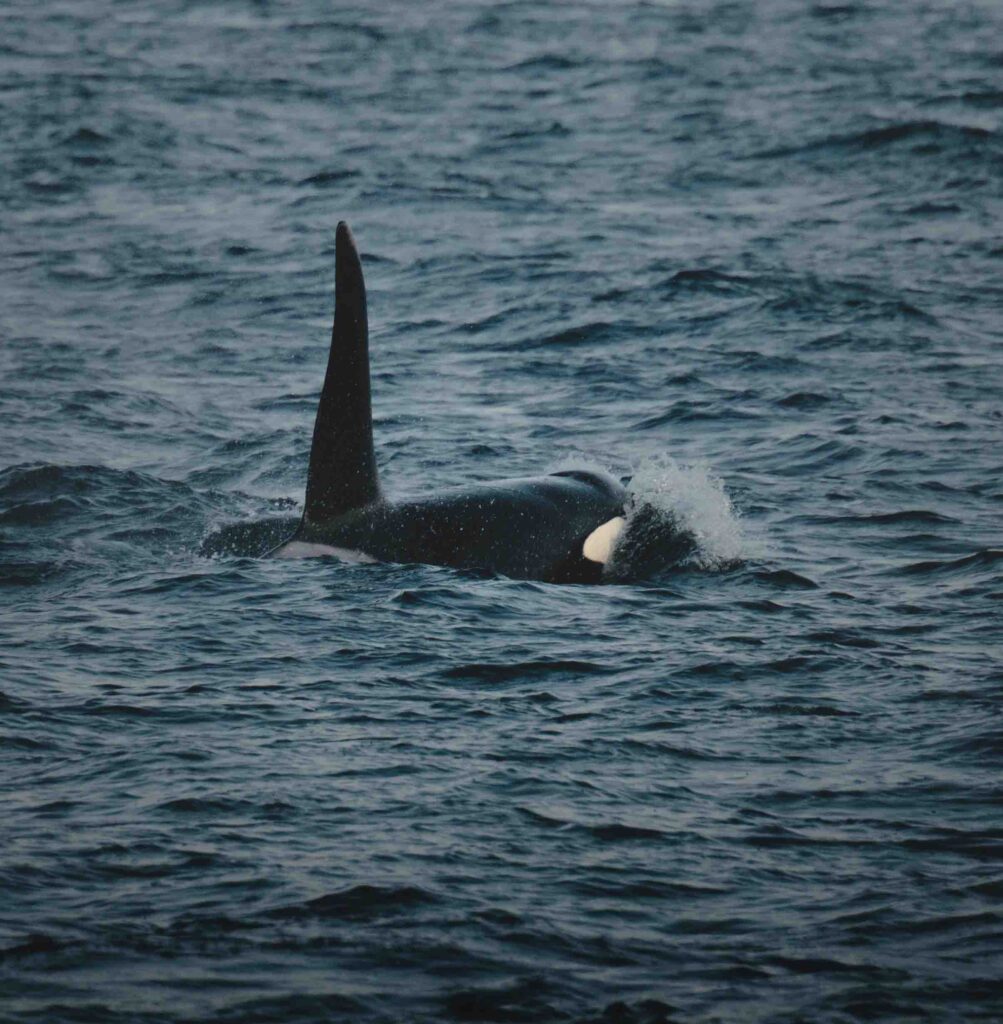
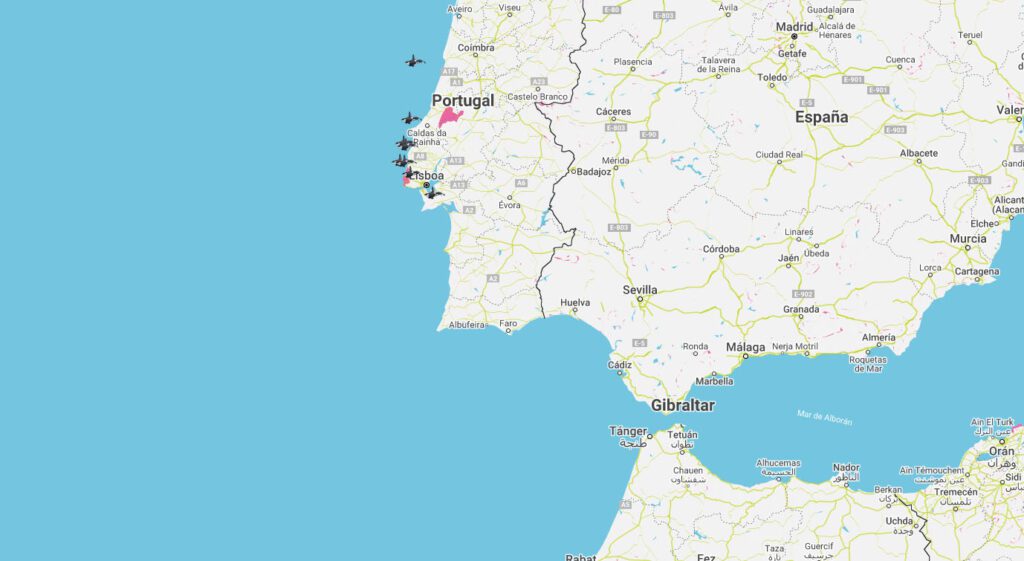
Les recommandations pour la navigation avec les orques
S’informer en amont du passage dans la zone concernée
Pour l’équipage qui s’apprête à naviguer dans la zone d’attaque des orques, se renseigner au préalable est extrêmement important. En effet, la rencontre avec des orques en voilier peut, le plus souvent, être évitée.
En prévision de la navigation, plusieurs supports peuvent être consultés :
- Le portail d’information et de signalement des orques de la Cruising Association (CA)
- Le site web du Groupe de Travail Orca Atlántica (GTOA)
- Les applications GT Orcas et Orcinus
- Le groupe Facebook Orca Attack Reports
Les derniers signalements d’orques au large du Portugal, de Gibraltar, de l’Espagne et du Maroc, ainsi que des cartes régulièrement mises à jour permettront de choisir la route la plus sûre… ou celle sur laquelle il y aura le moins de chance de croiser les espèces.
Les orques Gladis se trouvant majoritairement au large, il faudrait, pour éviter la zone à risque, naviguer au plus près des côtes, dans des eaux peu profondes – idéalement moins de 20 mètres de profondeur. Ceci, quitte à changer d’itinéraire ou à dévier sa route.
En cas de rencontre avec des orques en navigation
Si les précautions précédentes ne permettent pas d’éviter la rencontre d’orques ibériques en navigation, vous adopterez sans attendre le meilleur comportement :
Comme pour toutes les espèces croisées en mer ou à terre, il est recommandé de respecter le lieu de vie et les activités des cétacés et, bien sûr, de ne pas chercher à les approcher ni à les toucher.
En cas d’interaction avec des orques, si les conditions le permettent, le GTOA préconise d’affaler les voiles, de couper le moteur et le pilote automatique, et d’immobiliser le voilier. Ceci, pour rendre le bateau inintéressant aux yeux des orques, leur faire perdre leur intérêt et les inciter à s’éloigner. Toute rencontre doit être signalée aux autorités (VHF canal 16 ou téléphone 112), et il est conseillé aux équipages de se tenir en retrait de toute partie du bateau qui pourrait provoquer des blessures – en tombant ou tournant.
Il est demandé aux plaisanciers de filmer, si possible, la scène : en effet, ceci faciliterait l’identification des individus concernés et la compréhension de leur comportement. L’idéal est de rester hors de vue des animaux.
Enfin, le renseignement d’une attaque d’orques, de la localisation et des dates et heures précises sera susceptible d’aider les futurs navigateurs sur la zone.
Des équipements pour prévenir ou réagir en cas d’attaque d’orques
Pour se prémunir des « attaques d’orques » ou interaction et s’assurer de naviguer en sécurité, il existe des dispositifs spécifiques.
Parmi eux, le pinger anti-déprédation est un répulsif acoustique à embarquer en un exemplaire ou deux – pour un monocoque ou un catamaran – et qui permet de garder les orques ibériques à distance. En immersion derrière le bateau, sur un bout lesté à environ 4 à 5 mètres sous l’eau, le ou les pingers créent une bulle de protection tout autour du bateau, grâce à l’émission de sons.
La solution n’aurait pas d’impact sur le milieu marin et la biodiversité, si ce n’est de repousser la venue des cétacés autour du bateau… mais, selon nous, il est facile d’imaginer que cet équipement puisse déranger les différentes espèces. Nous vous encourageons à n’utiliser le ou les pingers du bord qu’en cas d’urgence…
Les orques : des espèces rares, à préserver
Rencontrer un groupe d’orques en navigation peut faire peur, mais souvenons-nous qu’il s’agit d’espèces marines qui sont, en Atlantique Nord-Est, chez elles. De plus, l’orque ibérique est classée en danger critique d’extinction depuis 2019.
Selon l’Union internationale pour la conservation de la nature (UICN), la population est estimée à une cinquantaine d’individus seulement. Les orques Gladis, elles, ne seraient qu’une quinzaine.
Il est donc indispensable de veiller à la protection des orques et à l’équilibre de cette espèce en particulier, quelles que soient nos envies et projets de navigation. Seule une cohabitation respectueuse permettra la survie de l’espèce !
Le saviez-vous ?
Chez Grand Large Services, nous avons à cœur d’aider les universitaires et biologistes marins, notamment dans le cadre des navigations en rallyes organisées par nos équipes.
Nous sommes heureux de soutenir la société d’observation des baleines et de recherche en sciences marines Biosean, fondée en 2019 par le biologiste marin Misael Morales Vargas. D’ailleurs, le passionné reçoit régulièrement les équipages de nos rallyes en escale à Tenerife, pour les sensibiliser, pour les inviter à prendre part au travail de recherche et pour partager les secrets de son métier !
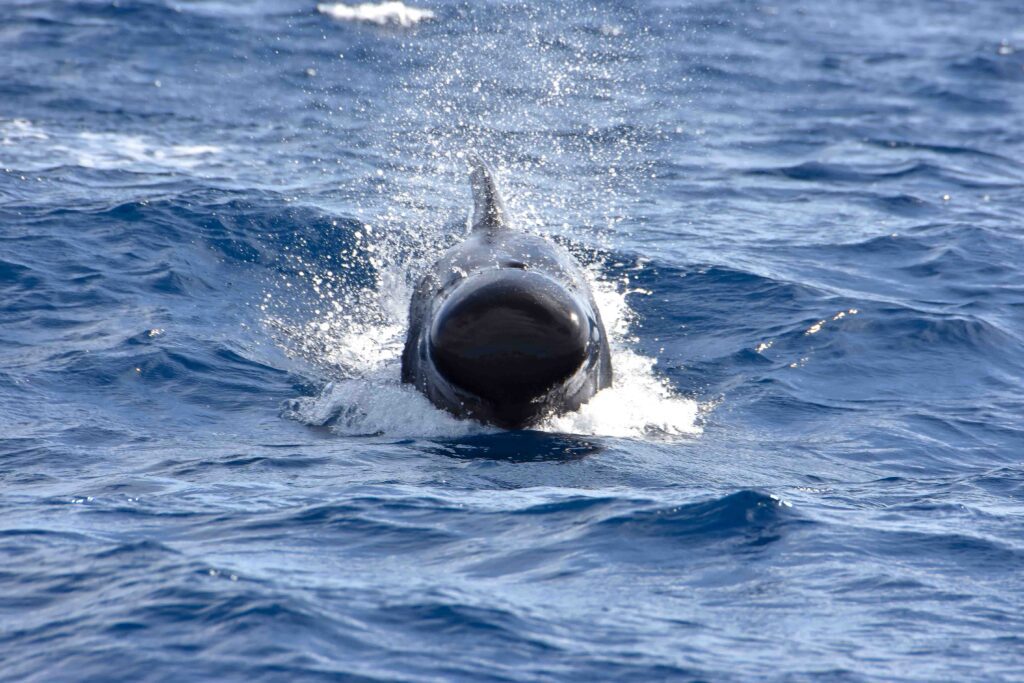
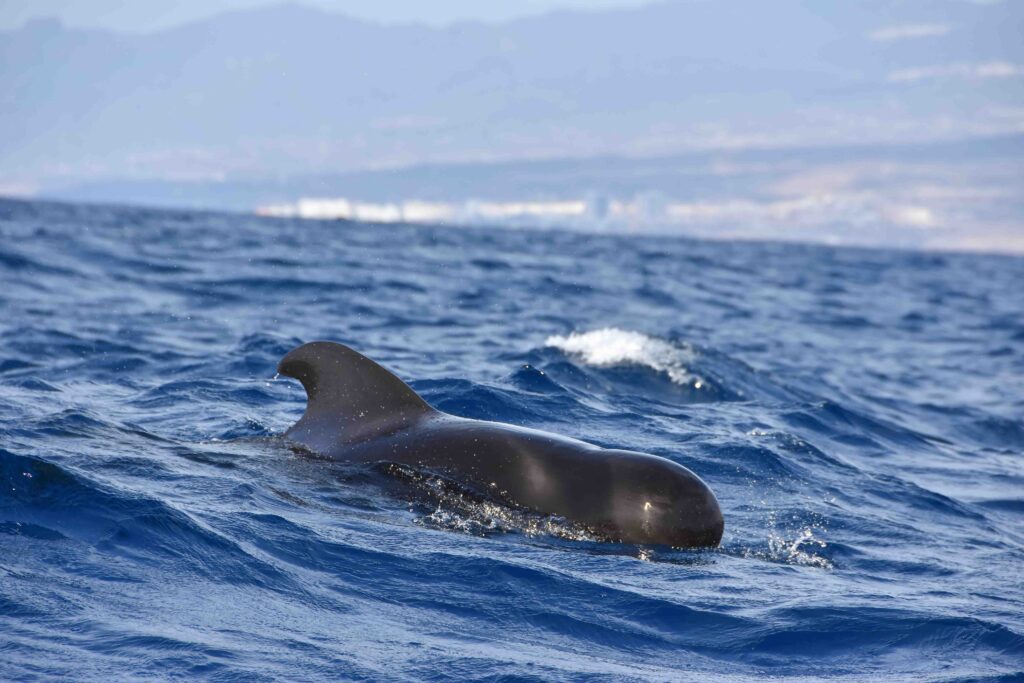
Vous prévoyez de naviguer à la sortie de la Méditerranée, au large des côtes portugaises, de l’Espagne ou de Gibraltar ? Pour traverser la zone sans encombre, nos meilleurs conseils seront toujours d’anticiper les risques, et d’embarquer tout le matériel utile sur votre voilier.
Choix de l’itinéraire, formation, équipement du bateau… Si vous avez besoin d’aide, les professionnels de Grand Large Services vous assistent dans la préparation de votre prochaine croisière.

